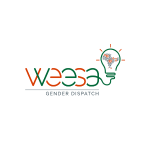

Women’s Economic Empowerment in South Asia (Hosted by SAR GIL)
Tags
- Gender-based Violence (17)
- Water (17)
- Measurement (10)
- Leadership (19)
- Afghanistan (4)
- Social Norms (9)
- Infographics (9)
- Migration (14)
- Transportation (12)
- Green Transition (7)
- Brief (2)
- Empowerment (5)
- Toolkits (13)
- Pakistan (23)
- Energy (26)
- Jobs (43)
- Infrastructure (20)
- Self-help Groups (12)
- Agriculture (12)
- Social Protection (12)
- Digital Inclusion (19)
- Nepal (12)
- Private Sector (27)
- Care Economy (10)
- Bhutan (2)
- Sri Lanka (6)
- Blogs & Articles (34)
- Podcast (33)
- Reports (70)
- India (30)
- Assets and Resources (14)
- Bangladesh (24)
- Maldives (1)
- Climate Change (32)
- Entrepreneurship (31)
- Video (2)
- Financial Inclusion (24)
- Policies and Legislation (14)
- Male Engagement (7)
- Gender Budgeting (7)
- Education and Skills (23)
Archives
- 2023 September (55)
- 2023 October (30)
- 2023 November (20)
- 2023 December (1)
- 2024 January (14)
- 2024 February (14)
- 2024 March (11)
- 2024 April (13)
- 2024 May (93)
- 2024 June (2)
- 2024 July (12)
- 2024 August (16)
- 2024 September (12)
- 2024 October (16)
- 2024 November (27)
- 2024 December (5)
- 2025 January (12)
- 2025 February (18)
- 2025 March (19)
- 2025 April (8)
- 2025 May (12)
- 2025 June (2)

Blog » Women's Empowerment, Extended Families and Male Migration in Nepal: Insights from Mixed Methods Analysis (2022)
Women's Empowerment, Extended Families and Male Migration in Nepal: Insights from Mixed Methods Analysis (2022)
This paper analyzes variations in women’s empowerment based on their husband’s migration status and factors such as caste, ethnicity, and household composition. It finds that wives in nuclear households with migrant husbands experience greater economic empowerment despite heavier workloads. In extended families, daughters-in-law tend to be more empowered when their husbands live at home and can mediate family influence. Janajati and Dalit women generally face greater disempowerment (compared to "upper caste" women), mainly due to poverty and social exclusion.